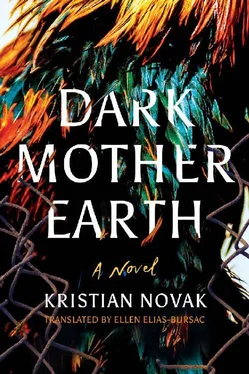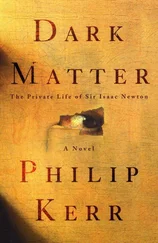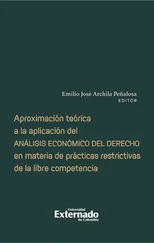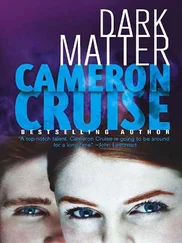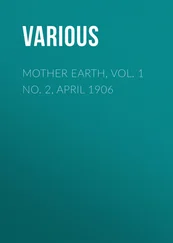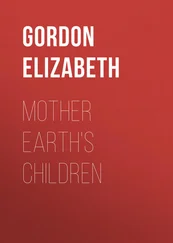The sorrow and fury of the peaceful folks mounted, and they gathered their kin from the neighboring villages and set out after the ogres. As they had no weapons, the men took with them hoes, pitchforks, and picks—anything they could lay their hands on. The women and children listened to the screams, tramping, and blows echoing all night from the forest, and many good men lost their lives.
At dawn the ogres slew young Janko, a decent, God-fearing boy, a lad beloved far and wide. He was the son of the old woman who’d fetched the ogres the candle, and the very child who, many years before, had said, “Dear Father, dear God, how will you reward us for our loyal service?”
This sparked the wrath of God the Father, and he sent three angels, who cut the ogres down to their very toes. The angels towered over the ogres and lopped off their heads. Their headless bodies were buried there in a vast pit in the forest, where the feet of three hills meet, and this place is still called Angels’ Slaughter. A few of the ogres escaped to the river, but they drowned in the depths they themselves had dredged with the hooves of their giant horses.
Some say the forest was cursed that night. The people, especially older folks, say that even today when the fog rises from the Mura riverbanks on autumn evenings, one can see lights flickering at the edges of the forest. They say these flickering lights are the will-o’-the-wisps, lit by headless bodies rising from their unmarked grave. The ghouls silently pace the forest, candles in hand, waiting for their day of revenge. Perhaps they’re waiting to pounce on stray villagers. Each Međimurje village claims that the great battle took place right where it now stands.
In one village, the one closest to Grieving Mother Mura and Angels’ Slaughter, they say the courageous lad Janko was buried beneath old linden trees at the place where two paths converged at an angle, one leading up from the riverbank into the hills and the other leading to the other Mura villages. The lindens are long gone, but this is the place where all villagers are buried when they die.
Many years later, at that same burial ground, I swear there must have been eight hundred people gathered to pay their respects to a man everybody thought of as a fine fellow, and whom they remembered as always flashing his warm smile. He was scarcely forty when he succumbed to his illness and left behind his wife, his fourteen-year-old daughter, and me, his five-year-old son.
Looking at the crowd, I felt there was something frozen about the scene, something eternal that justified the disquiet that, though I didn’t know it then, would haunt me to this day. It was this feeling that everything I was seeing was staged. The whole thing made me queasy. A sour taste kept rising to my mouth from the bologna in the sandwich I’d wolfed down that morning as people gathered in our yard with black umbrellas and white handkerchiefs. I felt all collywobbles and remembered Dad saying on the way to the coast one time to think about something else, at least until the next rest stop where we could pull over. I didn’t know what else there was for me to fix my mind on, so I threw up all over the car window, my sister, and the rest of the back seat in an effort to spare my mother—sitting in front of me—the contents of my stomach. I didn’t want to puke all over the grave, so I watched people and tried to remember their names to fix my mind on them. I was surprised to learn one of the mourners was named Vajnč, even though everybody called him Poison because he’d had to go to the emergency room one Easter after drinking rat poison by mistake. There were also men who, if you asked me, looked as if their name ought to be Miška (they had these bushy whiskers, drove lawn mowers, and in the summer came to the front gate in just an undershirt), and others I imagined just had to be named Joža (they had big earlobes, didn’t shave often, and sometimes even dared to say “honest t’ God”), but their names, of course, were totally different.
I was still small and didn’t know much about how things appear and disappear in this world, but I did understand how you could get stuck with a nickname if you showed off, or kept saying the same thing over and over, or were different. Somebody comes up with it, says it, and everybody laughs. The nickname sticks like tar to the person who’s marked by it, and to those who use it. And it wasn’t just anybody who came up with nicknames. Some of the nastiest ones (Serf, Stinker, Corpse and his entire family—the big and little Corpses) were cooked up by Imbra Perčić, who probably enjoyed the privilege because he was our only electrician and so we had to put up with his ornery ways. Because they feared acquiring a nickname, people seemed to watch what they did, what they bought, how they dressed, and what they said. If they’d seen me picking my nose, they might’ve dubbed my whole family the Boogies. Somebody might crow, “Lookee, lookee, here come the Boogies.” Everybody would laugh, and the name would stick forever. Then again, they might name me after a soccer player from Germany or Italy if I scored a goal for the Miners, the local soccer team.
Julika, known as Stockings, breathed through tightly clenched teeth at the funeral. Her late brother had worked as a mason somewhere near Klagenfurt and died there when he fell, drunk, off the scaffolding. He’d always worn his pants tucked into his socks because he said he didn’t want to catch his toe in the cuff, stumble, and, God forbid, fall and smash himself to pieces. A little farther from the grave, by the cypresses near the mortuary, a man we called Samanta—because he was always talking about the singer Samantha Fox at the bar—wiped away his tears. He was good at painting, and he painted portraits of Samantha Fox from pictures he’d cut out of magazines. He did a fine job painting her face and torso, but not her arms, so Samantha always had them behind her back, as if she were being arrested. Next to Samanta stood a widow who was known as John Deere because she drove a little tractor.
Next to her stood Đura, head of the village. He had clasped his hands in front of him, but his face was so twisted from holding back his sobs that his chin and nose nearly met. His wife, Mirica, pressed her purse to her chest and bowed her head so nobody could see her face. They were communists, and they didn’t cross themselves or say prayers. My granny told me the commies didn’t believe in God and didn’t think good people went to heaven, and she said all the baddies (including, according to her, the commies, anyone who stole, and those who worked on Sundays) went to hell. Đura and Mirica were the only ones who played their part well, I thought. If the believers actually believed my dad had been a good man, they should be happy now that he was better off than us in heaven. Granny told me you don’t have to do anything in heaven, nobody makes you eat or go to bed, and you get whatever you want.
Next to Đura and Mirica, who, as village heads and commies, probably didn’t need nicknames, stood the Ciphers. We called them that because a long time ago they’d had this cow everybody adored named Cipher. According to Granny, the cow was almost noble, with her stately gait and her hide, which was covered with beautiful brown spots, but she was most remarkable for her humanlike gaze. She’d look you straight in the eye and snort as if saying howdy. When Cipher died, Granny said, sadness settled over the village. The teachers at school assigned the children to draw a “cow or another domestic animal during the National Liberation Movement,” and several people wanted to hold a requiem Mass for her, but the parish priest wouldn’t have it. He explained that an animal couldn’t have a soul. “We don’t have to call it a requiem Mass, let the Father call it what he wants!” said somebody, but the priest did not oblige. Still, in his heart of hearts, he knew what sort of animal she’d been. At Mass the next Sunday, he spoke so movingly about the animals that kept baby Jesus warm that people were dabbing their eyes during Communion. The cow’s owner had been called Cipher long before the cow died, but he didn’t mind the nickname. They called his wife and kids the Ciphers, and later they even bestowed this nickname on his son-in-law, who’d come from Slovenia, just over the river from Prekmurje, and who’d had nothing whatsoever to do with that particular cow.
Читать дальше
